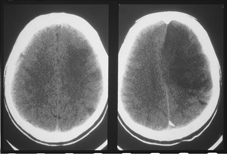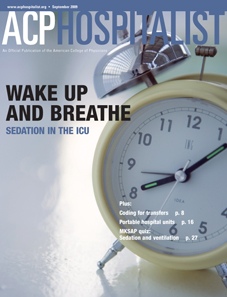What's old is new again: Hospitals move to buy internists' practices
A round-up of this issue's articles on hospital integration, coordinating stroke care and the dangers of herbal supplements.
Internists looking to sell their practices today may find a familiar taker: their local hospital. As in the 1990s, many hospitals are once again ready and eager to purchase private practices in order to increase referrals and pump up their revenue streams. While the previous trend fizzled out in a wave of mismanagement, this time hospitals seem better equipped to handle the practices they buy. But although for internists the chance to spend less time on administration and more time practicing medicine may seem too good to pass up, selling also has its potential downsides. It's important to know what to look for when a hospital wants to make a deal. In our cover story, Rochelle Nataloni examines why this trend is resurfacing now and what internists need to know to successfully negotiate a sale.
After a stroke, patients need specialized care, and their primary care physicians are best positioned to coordinate it. But with stroke research and best practices changing daily, that can be a challenge. For example, a recent study conducted in the VA system found that two-thirds of patients who'd had a stroke had discontinued their antithrombotic medications within six months after leaving the hospital, and another found that only two-thirds of stroke patients who smoked had been counseled to quit. Bonnie Darves discusses strategies to improve care quality in post-stroke patients and summarizes current research on antiplatelet use, physical therapy, and prevention of recurrence.
With the time pressures internists face, it's gotten harder to find an opportunity to ask patients about supplements they may be taking. The additional five or ten minutes can be well worth it, however, since many seemingly harmless herbs and natural remedies can cause serious adverse effects when taken with common medications. Learn which supplements are the most blatant offenders, including why some experts consider St. John's wort the poster child for potential harm.
We'd like to know: Have you sold your practice to a hospital, or do you have tips for handling discussions with patients about supplement use? Tell us about it.
Sincerely,
Jennifer Kearney-Strouse




